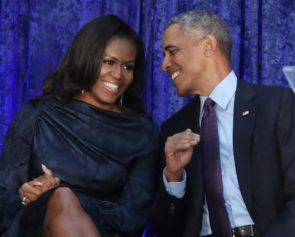Congratulations to President Obama poured in from leaders around the world whose enthusiasm was largely dictated by their nation’s current relationship with the United States.
Obama is probably much more popular abroad among regular citizens than among their leaders—as was evident by the images streamed across the world of celebrations taking place in countries as diverse as Kenya, Japan and Britain. In Africa, the enthusiasm that was seen in 2008 has been substantially muted as Africans have come to realize that Obama’s election didn’t usher in much of a change in the U.S. policy toward the African continent.
The statement that came out of South Africa from President Jacob Zuma was described by the Globe and Mail as “terse,” probably reflecting the tension that has accompanied the relationship between Zuma and the Obama administration on issues such as Libya. Zuma urged Obama to “play a positive role” in Africa’s development.
“We value our relations with the United States and look forward to strengthening bilateral cooperation in the years to come,” Zuma said in the statement.
The reaction was a bit more effusive from Nelson Mandela’s former wife, Winnie Madikizela-Mandela, who told reporters in Pretoria that Obama’s victory speech had brought tears to her eyes.
“We all need an Obama presidency,” she said.
The Nelson Mandela Centre of Memory congratulated Obama and described the United States as “a vital partner in Africa’s efforts to overcome poverty and inequality.”
There was much more joy in Kenya, the home of the president’s late father.
“Kenya, as always is proud of our association with you,” Kenyan President Mwai Kibaki said in a statement. “We look forward to the deepening of relations between our two countries during your second term in office.”
“The reason why he has won is because God has given it to him,” said Sarah Obama, the 90-year-old stepgrandmother to President Obama—she is the third wife of the paternal grandfather of the president.
German Chancellor Angela Merkel, a close ally of Obama’s, wrote a letter to him, congratulating him on his re-election and hailed their cooperation to beat the global economic crisis. “I have deeply appreciated our many meetings and conversations about all the issues involved in developing the German-American and the transatlantic relationship, not least in overcoming the global financial and economic crisis,” she wrote in a letter released by her office.
From France, President Francois Hollande said Obama’s re-election a “clear choice for an open, united America that is totally engaged on the international scene,” he said.
This was a clear swipe at Romney, whose blustering and unnecessarily aggressive stance toward much of the rest of the world—except for Israel—alarmed many world leaders.
Obama’s election would “once again reinforce our partnership to facilitate the return of economic growth in our countries, to fight unemployment, and to find solutions to crises that threaten us, notably in the Middle East,” said Hollande, who had been extremely open about his preference for Obama—as were his French countrymen.
He said the election would further buttress “the friendship and the [mutual] confidence which unite us,” he added, saying it was “an important moment for the United States and also for the world.”
There was even congratulations coming from the Middle East, whose relations with the U.S. are much more complicated—which became a major campaign issue between Obama and Romney.
Egypt’s President Mohamed Morsi sent a telegram today hailing Obama’s re-election and said he hoped it would strengthen the “friendship” between their two countries.
Morsi hoped for a “strengthening of the friendship between the two countries to serve their common interests, namely justice, freedom and peace,” read a telegram released by the official news agency.
Palestinian President Mahmoud Abbas, who must have felt some relief that Romney—a BFF to Israeli Prime Minister Benjamin Netanyahu from their younger days working together at Boston Consulting Group—was defeated, congratulated Obama and called on him to pursue Middle East peace efforts.
“The president hopes that Obama continues his efforts to achieve peace in the Middle East,” Abbas said in a statement.
Netanyahu said in a statement that ties between the U.S. and Israel were “stronger than ever”—though Netanyahu wasn’t using such laudatory language toward Obama just days ago.
“I will continue to work with President Obama to ensure the vital security interests of Israel and the United States,” Netanyahu added, saying he would meet later Wednesday with US ambassador to Israel Dan Shapiro.
Russian President Vladimir Putin also sent Obama a telegram congratulating him on his victory. According to Kremlin spokesperson Dmitry Peskov, the Kremlin received the news of Obama’s victory “very positively”—which is probably the truth, since Romney had frequently criticized Obama for being too soft on Russia and Putin, prompting the Obama campaign to accuse Romney of trying to pull U.S. foreign policy back to the Cold War of yesteryear.


